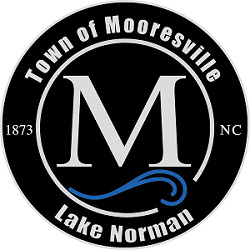
FROM STAFF REPORTS
The Town of Mooresville’s Growth Management Working Group has concluded that enacting a town-wide moratorium on residential development cannot be legally implemented at this time due to state laws regulating moratoriums.
Town commissioners received a report on the advisory group’s findings during Tuesday’s board meeting.
The 10-member committee, which was chaired by Mayor Pro Tem Lisa Qualls, concluded that the primary solution to alleviating traffic congestion rests in improving the capacity of state roads such as Highway 150, which would be cost prohibitive for the town.
More than 18,000 vehicles use Highway 150 each day and 50 percent of the roads in the town’s jurisdiction are above capacity, the group reported. The major roads where traffic congestion is the worst are controlled by the N.C. Department of Transportation, not the Town of Mooresville.
State law requires that any entity that enacts a moratorium must identify the problem to be addressed during the moratorium and fund the remedy.
Committee member Mike Cole, who serves on the Mooresville Planning Board, told town commissioners that the working group determined that a general moratorium is not feasible because the town does not have control over road construction on major roads.
Furthermore, addressing the town’s road issues could cost up to $1 billion, Cole said.
Among the committee’s recommendations were:
♦ Town staff to encourage growth in areas where existing infrastructure can accommodate the anticipated growth;
♦ The town board consider the implementation of a moratorium in limited geographic areas where the town has the ability to address an underlying issue caused by continued development. For example, the town could temporarily stop development in an area that did not have adequate fire protection until a new fire station was constructed and in service in that area.
♦ Town staff and the board should explore the issuance of transportation bonds to raise funding to pay for road improvements; and
♦ Town officials should consider expanding bus service in the town’s jurisdiction.
Committee members included Qualls, Cole, Mooresville commissioners Eddie Dingler and Tommy DeWeese, Iredell County Commissioner Bert Connolly, Mike Jones (Mooresville Board of Adjustment), Boen Nutting (Iredell-Statesville Schools), Jason Gardner (Mooresville Graded Schools), Jenn Bosser (Iredell County Economic Development Corp.) and Bill Thunberg (Lake Norman Transportation Commission).




Lower the speed limit on 150 in the area east of 115 to 35 mph. This may discourage truckers from using 150 as a cut through. Plus put up no engine braking signs as a town ordinance with a 10,000 dollar fine.
A lower speed limit is great unfortunately no one pays attention to the 45 mph. Banning truckers east of 115 to 801 would alleviate a lot; they need to take the extender road to Mazzeppa to 801 to 150. Overhead Bridge Road is not meant for 18-wheelers or a cut through for daily commute. Those who build commercially by residential should be required to put up berms or tall walls to not destroy the neighborhood. This requirement should be retroactive for the businesses that have adversely affected their neighbors Potential businesses should be required to notify surrounding neighborhoods and a public hearing does not meet that requirement! By the time neighborhoods find out, the trees are slaughtered and the neighborhood is forever altered!
Really? That’s not a long term solution. No one wants to point out how ridiculous it is that the state won’t let a town limit development without having to fix the roads on their dime while they all leave traffic and congestion and are not feeling the pain? What are we paying taxes for if the state won’t let towns defend themselves?
Don’t expect the state to run in and correct the mistakes made by the Town of Mooresville. People tried to tell them to slow down, but they refused. Now here we are, stuck in traffic purgatory with no viable solutions in sight.